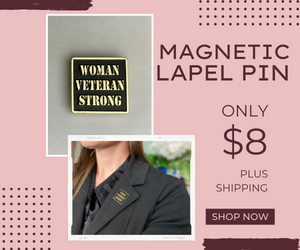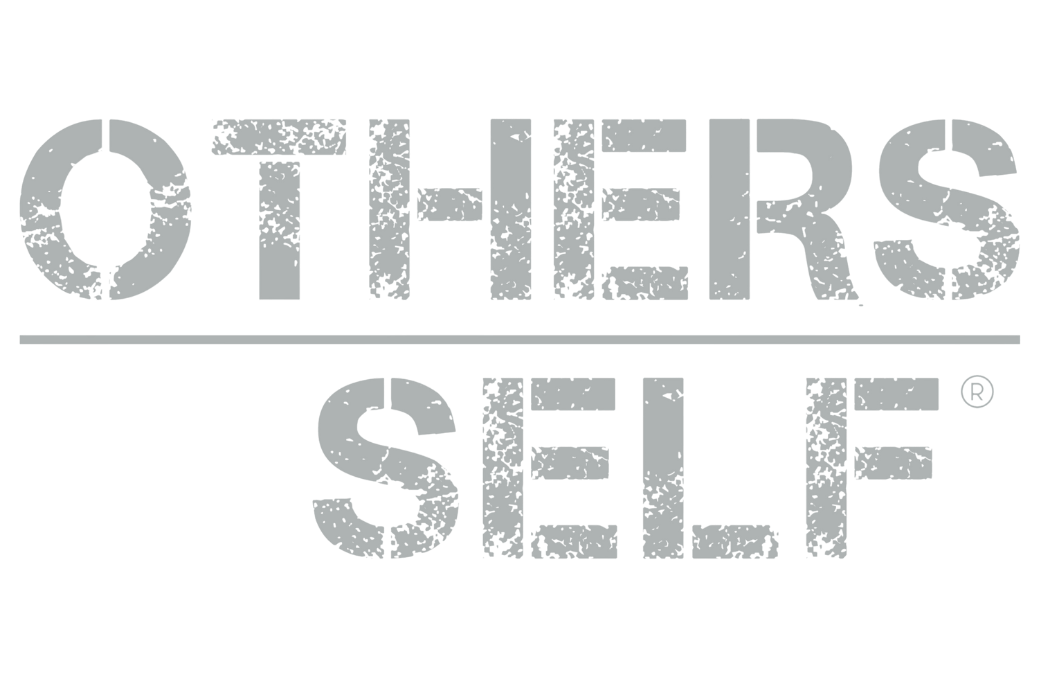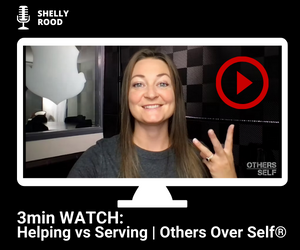If loving your neighbor is such a wonderful thing, why do most people feel taken advantage of from time to time? Whether your daily work is in the office or at home, the key is learning how to give without burning out- so that we can ultimately share lifelong love with our neighbors.
In this article, you’ll discover:
- How to recognize when you’re giving too much
- The various groups you currently serve
- What “fire hydrant giving” is
- Steps to focus your efforts and make a bigger impact
A Day in the Army
When you join the Army, they own you.
They tell you when to eat, when to sleep, when to rise (zero-dark-thirty), and what to do with your every waking minute.
Here’s a flashback… do you remember this iconic 80’s Army recruiting ad, touting the statement, “Do more than 9am than most people do all day.”?
While I don’t care much for the main actor’s facial hair, the rest of the ad is spot on.
If you’re into cool military stories, check out our military culture section here on the blog.
I served in the military over a time span of 16-years. Looking back, here’s a snapshot of my typical day while on Active Status:
Do physical training.
Conduct personal hygiene.
Clean your weapon.
Pack for the field.
March 6 miles.
Hurry up.
Wait in the rain.
Train in the woods.
March 6 miles back.
Clean your weapon.
Conduct personal hygiene…
Unpack from the field… shove food down your throat… sleep in your bunk… wake up and do it again.
And I even left out a lot! Scrubbing the bathrooms with a toothbrush, standing in formation… we could keep going, but that’s not why you’re reading this article.

This time of my life is setting the scene to help us recognize when “fire hydrant giving” is appropriate (I’ll explain that phrase in the next section).
Just for fun – if you make it to the end of this post, you’ll be treated to a Haiku poem about going on an early morning ruck march in the Army.
Recognizing When You’re Giving Too Much
Is giving too much even a thing? Of course it is.
we do a disservice to our neighbors and ourselves when we fail to regulate.
And I’m saying this as the owner of a company that promotes a lifestyle of serving others. It is possible to give too much, and we do a disservice to our neighbors- and ourselves- when we fail to regulate.
I was honorably discharged from the military in 2018, and I can honestly say that there were many times that I felt taken advantage of during my time in service.
Do you feel this way right now?
Pay attention to your first instinct when you think about that question. Are you feeling taken advantage of at your work, your child’s school, or perhaps in your relationship with a loved one? We’ll come back to this.
Burning Out: My Personal Story of Recognition
On a whole, my military career was a time of adventure. I loved the shooting ranges, the jam-packed days and the strategic planning of seemingly impossible missions. Yet, life doesn’t allow for all play and no work.
When a spouse and child came into the picture, the early mornings and time away eventually became unbearable- but perhaps not for the reason you’re thinking.
“While I was at the nation’s top intelligence school, my child was with an unsuitable caregiver.”
I could always handle being away from my spouse. In fact, over time, I came to prefer it. We were dual-military (meaning that he also served), and we used to joke about spending more time apart than together.
Living practically separate lives, we got by for the first few years. When a baby came along, however, that all changed.
His social drinking turned to excess, and I started to see how truly unhealthy our relationship was. Together, we were failing as parents to care for a child. After years of turmoil and abuse, the words from a pastoral counselor finally rang clear, “Shelly, that isn’t a marriage.”
After nine and a half years, I filed for divorce and made the decision to raise my four-year-old son without his father.
Here’s a rundown of my commitments at the time of this mess:
I had a civilian job and was serving in the Army Reserves. From clear across the country, I needed to: pass my exams, find a new place for us to live, a new school for him to attend, sell the house, finalize legal papers and coordinate the move. My civilian employer and clients were eagerly awaiting my return. While I was being briefed at the top intelligence school on threats to national security, my child was with an unsuitable caregiver.
Forget my own mental wellness… there was too much to do. How’s that for burning out?
I was simply giving too much.
Now that I’ve shared my story of burn-out recognition, what’s yours?
Let me rephrase that:
How did you come to know that you were giving too much?
Below are a few tools to serve us in answering that question.
All the Ways we Serve
First, let us understand that while we can always point fingers at other people for causing our current situation, this is an unhealthy act that gets us nowhere.
Make a lasting impact by focusing on the things that you have control over
I am fully justified in blaming the behavior of my ex for the downfall of our marriage. I am also justified in having negative feelings against my military unit commander, who refused my transfer request to be closer to my child. Instead of focusing on those people, I chose to focus on my responsibility to change my situation.
By focusing on the things that we have control over, we are able to make meaningful change in our own lives. We can use this to streamline our efforts and make a lasting impact on the world around us.
Activity: Identify Your Current Commitments
It’s time to engage in an activity that allows us to identify the groups of people we belong to and serve.
Grab some spare paper and use the chart below as a reference when completing this task:
In 2 minutes: as fast as you can, write down as many groups as possible you feel you serve in some capacity.
Examples of Groups we Serve:

Pencils down!
Are you surprised by how many you wrote down? Was it too many, or too few?
Personally, I wrote down too many. It’s my natural inclination to go one million percent on every project. I’m also not very good at turning projects down…
Now, circle the top 3-5 groups you serve, that are most important to you.
It’s important that we recognize not only where our efforts are, but also where our heart lies. Here are a few questions for further reflecting on your work:
Take a look at the groups you circled… if you could put them under column headings (like the ones in the example chart), which would they be under? Feel free to write your own.
What about the groups you didn’t circle… what column headings would they be under?
The first time I did this activity, I realized that I had a lot of business networking groups that were not circled. They felt individually important, but collectively, they capitalized much of my time. One of the groups was designed to help businesses gain profit, but I was actually giving value more to the group than my business was receiving.
This activity helped me decide to drop that particular group.

What Fire Hydrant Giving is all About
Think back to my burn-out recognition story.
At the time, the main groups that I served were my civilian career, my military career, my child and my spouse. That’s only four (God wasn’t really in the picture for me yet, but that’s a story for another time).
Problems arose, however, when three out of the four required a surge of attention.
My military career needed me on a focused task away from home. My spouse needed me to manage a household that he was incapable of leading. And my son needed me to, well, be a dedicated parent. I could handle one or two of these things on my own, but not all three at once.
There’s a well known metaphor that nicely sums up this lesson: you can’t drink from a fire hose.
And at the time of my burn out, I felt like I was drinking from three – or at least trying to control them all myself.

How to Regulate Giving
On the other end of the fire hose is the fire hydrant. The fire hydrant is a control measure. It regulates the water pressure and allows the stream of water to be turned on or off.
Fire hydrant giving is about regulating the amount we give, when and where
Your ability to serve is the rushing river of water, flowing underneath the hydrant.
Your body is the hydrant – a vessel capable of action and regulation.
Who and how you serve are the hoses and pressures of the water coming out of the hydrant.
Are you still with me?
Fire hydrant giving is about regulating the amount we give, when and where.
Steps to Focus Your Efforts & Make a Bigger Impact
There will always be times when some areas of life require more love and attention than others. At the same time, if your river of giving has ten hoses attached and they’re all turned on, every stream will be weak and your source will be depleted in no time.
That’s what happened to me – I had at least four hoses, and three were turned on full blast.
Here are the steps I took to focus my efforts and bring positive change to my life. I encourage you to apply them to your own.
- Make sure your water supply is plentiful
- these are the basics: eat clean, stop smoking, quit drinking alcohol, ban drugs, get a good night’s sleep, consume positive content, etc. (don’t over complicate this, just do it)
- Know how many hoses are attached to your hydrant
- all of the groups you recorded during the activity in this post should serve you in identifying this
- Understand how many hoses are turned on full blast
- what’s important typically makes itself known, especially when compared to other tasks or priorities

A few more notes to consider:
- Hoses aren’t attached without a purpose: if one is connected to a hydrant, it’s turned on, as should your efforts of serving be
- Fires occur at different places: cities have multiple fire hydrants, so you should have multiple people coming alongside you and serving your groups
- A hydrant without a hose is a waste: service that is not being tapped into, or that is being lazily dripped out without direction or purpose has the potential to make a larger impact
- It takes more than one person to control a fire hose: when the pressure in an area of your life kicks up, look around for who can be with you through it
- Constant fire means a serious problem: if there is an area of your life that you are always giving everything to, it may be keeping you from giving to others
Here is an example of that last point:
When relationships fall apart, there are usually many factors involved. My ex-husband’s abuses affected my finances, my social relationships, my career, my performance as a mother and more.
Take time to reflect: What are the constant fires in your life, and how are they affecting your potential to serve others?
Better Times are Ahead

It took nearly two years, but the divorce was eventually finalized. Since a military transfer was not an option, I formally requested an extended leave of absence. It was granted, citing the reason of personal hardship (yes, filling out that paperwork felt like complete failure).
God entered into the picture. I started seeing how God was working in my life. My son and I moved to our own safe place and starting building a life designed to honor Him. Eventually, I started Army training again, but with a whole new perspective.
My story, like many others, is one of lifelong love.
Even though I deeply enjoy my privacy, I share these details of my life to let others know that hope exists. When we’re in the middle of chaos- with fire hoses spraying all around us- it can feel never ending.
The crummy job, the disrespectful family, the aging loved one, the overbearing boss, the money pit of a house, the car that’s in the shop again, the unexpected bill from the IRS – it all feels like too much.
That’s because it is. Life IS too much for you to handle on your own. It’s how humanity was designed.
Overtime, we start to see our true selves fade and we give way to the darkness. Our language turns crass, our behavior becomes self-focused and our hearts harden. We stop caring about our neighbors because we feel that they don’t care about us.
Just like mine, your life has deep meaning and purpose. It’s been eight years since that mess and I never could have imagined that my life today would look like it does. My life is amazing, and so is yours. If you disagree, then be thankful for the breath have today because it means that you’re being given more time to get there.
I almost forgot – as promised, here’s your poem about going on an early morning ruck march in the Army.
Hurry – A Haiku
by Chaplain Rood
zero dark thirty
A together hurry march
betrayed by the wait
Show this quip to any service member and they’ll likely reply with a deadpan, “yup.”






